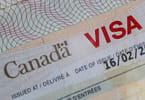Are you traveling to the United States, are you leaving the U.S. and are you carrying a mobile phone? Forget privacy when visiting the United States.
The US Customs and Border Protection agency may be interested in mobile phones by anyone entering or leaving the United States of America.
According to a report in the Wall Street Journal, US border authorities searched a record number of cellphones and other devices at U.S. points of entry last year. What they are looking for according to the agency: National-security threats and smugglers.
30,200 phones searched, 19,051 were leaving the U.S. More than 80% of the devices belonged to foreigners or legal permanent residents, with less than one in five owned by a U.S. citizen.
A new written policy outlining procedures for searching and seizing electronic devices at the border makes clear that agents can only examine information stored on the device, not additional data in “the cloud” that can be accessed.
The policy makes clear that while agents can ask for passwords to access a device, the passwords aren’t to be retained in any way.
And the policy sets forth standards for agents to do an “advanced search,” which involves connecting the device to a computer to retrieve and copy information. Under the rules, advanced searches are allowed only if there is “reasonable suspicion” and “articulable facts” to support it, and with the approval of a supervisor. The standards for more in-depth searches hadn’t been spelled out before. No such standard exists for basic searches.
The new policy requires border agents to notify a traveler when his or her device is to be searched unless telling the traveler would harm “national security, law enforcement, officer safety, or other operational interests.”
Former Department of Homeland Security Secretary John Kelly, who left the agency last year to become Mr. Trump’s chief of staff, said during a June Senate hearing that such searches aren’t routine and conducted only when necessary.
The Trump administration has promised to step up vetting of foreigners asking for permission to come into the U.S. and to change security at U.S. borders, including airports. Mr. Kelly suggested last year that border agents may even ask travelers for their social-media passwords and access to their internet browsers.
WHAT TO TAKE AWAY FROM THIS ARTICLE:
- A new written policy outlining procedures for searching and seizing electronic devices at the border makes clear that agents can only examine information stored on the device, not additional data in “the cloud” that can be accessed.
- According to a report in the Wall Street Journal, US border authorities searched a record number of cellphones and other devices at U.
- And the policy sets forth standards for agents to do an “advanced search,” which involves connecting the device to a computer to retrieve and copy information.






















